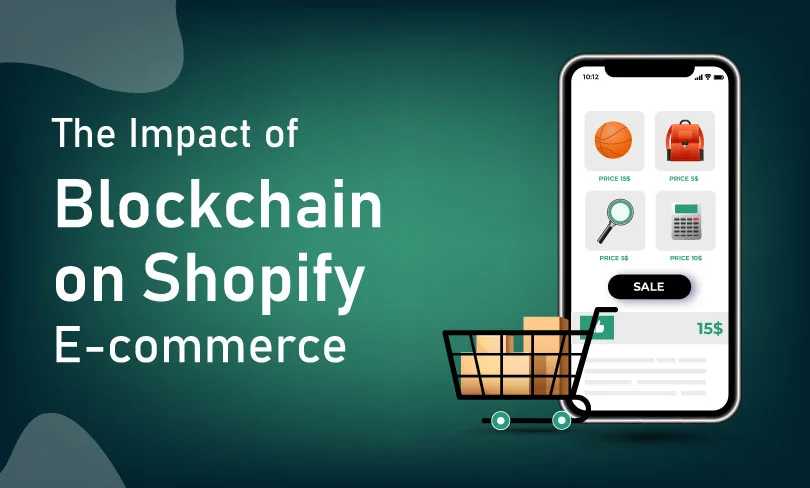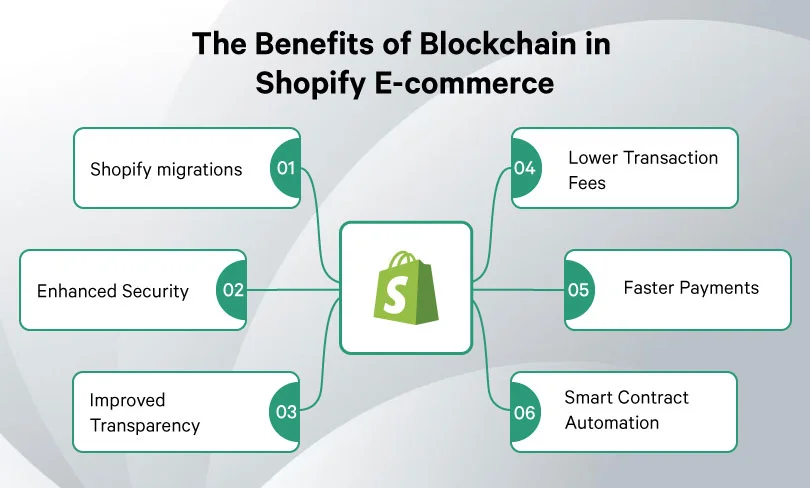The Impact of Blockchain on Shopify E-commerce

In the fast-evolving world of Shopify E-commerce, staying ahead of the curve is essential for online businesses. One of the most revolutionary technologies making waves today is blockchain. Often associated with cryptocurrencies like Bitcoin, blockchain offers more than just digital money; it brings transparency, security, and efficiency to various industries, including e-commerce.
Imagine a shopping experience where transactions are secure, costs are lower, and product origins are easily traceable. As Shopify continues to grow, integrating blockchain technology could transform how merchants operate and how customers shop. In this blog, we’ll explore the profound impact of blockchain on Shopify e-commerce and how it can reshape the future of online retail.
Understanding Blockchain Technology
Blockchain technology is a digital system that records transactions across multiple computers, creating a secure and decentralized database. Unlike traditional databases, which rely on a single central authority, blockchain operates across a network of users, making it highly resistant to tampering and fraud.
At its core, blockchain consists of “blocks” that store data, linked in chronological order to form a “chain.” Each block is secured and connected to the previous one using complex cryptographic algorithms, making it nearly impossible to alter data once it’s recorded. Key features like decentralization, transparency, and immutability (unchangeable records) set blockchain apart.
By enabling secure, transparent, and verifiable transactions, blockchain can transform industries like e-commerce, enhancing trust and efficiency. This technology’s potential is vast, especially for platforms like Shopify that rely on secure, reliable transactions to build customer confidence.
The Current State of Shopify E-commerce
Shopify has emerged as a significant e-commerce platform, powering millions of online companies globally. Known for its user-friendly interface, it enables anyone—from small businesses to large brands—to create, customize, and manage their online store with ease. Key features like customizable templates, inventory management, and multiple payment gateways make Shopify a go-to choice for entrepreneurs looking to establish a strong online presence.
However, despite its many strengths, Shopify e-commerce faces some challenges. Security concerns, such as data breaches and fraud, can impact customer trust. Additionally, transaction fees and delays with traditional payment systems can cut profits and slow down business operations. As the digital landscape evolves, finding ways to address these issues is essential for Shopify’s continued growth and competitiveness in e-commerce.
The Benefits of Blockchain in Shopify E-commerce

Blockchain technology offers a transformative solution for Shopify e-commerce, bringing enhanced security, transparency, and efficiency to online stores. For businesses undergoing Shopify Migrations or looking to optimize their operations, blockchain can provide unique advantages that improve both the merchant and customer experience. Here are five ways blockchain can benefit Shopify e-commerce:
Enhanced Security – Blockchain’s decentralized structure reduces the risk of fraud and data breaches, protecting both businesses and customers.
Improved Transparency – Transactions are easily traceable, helping build trust with customers by providing product history and sourcing information.
Lower Transaction Fees – By eliminating intermediaries, blockchain enables lower fees, making payments more cost-effective for Shopify merchants.
Faster Payments – Blockchain allows for real-time transactions, improving cash flow and reducing delays common with traditional payment methods.
Smart Contract Automation – Blockchain smart contracts can automate processes like payments, refunds, and customer agreements, saving time and reducing human error.
Future of Blockchain in Shopify E-commerce
As blockchain technology continues to advance, its potential to revolutionize Shopify e-commerce grows. From secure payments to streamlined supply chains, blockchain could redefine online retail operations on Shopify. Here are six ways blockchain might shape the future of Shopify e-commerce:
Wider Cryptocurrency Adoption – As cryptocurrencies become mainstream, Shopify merchants may increasingly offer crypto payment options, enhancing payment flexibility.
Enhanced Product Traceability – Blockchain allows for precise tracking of products, helping customers verify product origins and ethical sourcing.
Loyalty Programs with NFTs – Shopify stores could integrate NFTs (non-fungible tokens) for exclusive rewards and loyalty programs, adding value to customer engagement.
Decentralized Marketplaces – Blockchain could enable decentralized, peer-to-peer marketplaces, providing more control to merchants and customers alike.
Smart Contracts for Automated Transactions – Contracts on the blockchain could automate payments, refunds, and shipping, reducing manual work and ensuring transparency.
Improved Data Security and Privacy – With blockchain’s encryption and decentralization, Shopify stores can better protect customer data, building trust and compliance.
Conclusion
In a rapidly evolving digital world, blockchain stands out as a game-changer for e-commerce, especially for platforms like Shopify. By enhancing security, reducing costs, and improving transparency, blockchain can significantly elevate the Shopify shopping experience for both merchants and customers.
As blockchain adoption grows, the possibilities for innovation in e-commerce are vast. For businesses aiming to stay competitive, collaborating with experts, such as a Shopify Development Agency India, can be invaluable in exploring blockchain solutions tailored to Shopify.
Integrating blockchain can empower Shopify E-commerce stores to thrive in a trust-based digital landscape, meeting modern demands and setting new standards for reliability, efficiency, and customer satisfaction in online retail.
 Back to blog
Back to blog 


